Meet the Speakers
Matthew Brown (ISOP Past-President's Address 2021-2022): "Curiosities of Amoeboid Protists: from Genomics to Development"
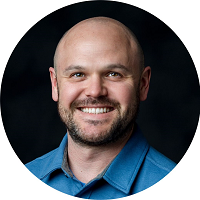
Matthew Brown (ISOP Past-President's Address 2021-2022): "Curiosities of Amoeboid Protists: from Genomics to Development"
Matthew Brown is the Hall Distinguished Professor in the Department of Biological Sciences at Mississippi State University, where he has been since 2013 after training in protistology in the USA and evolutionary genomics in Canada. His research focuses on amoeboid protists and their unique evolutionary innovations, using a variety of cutting-edge techniques including developmental transcriptomics, phylogenomics, and environmental DNA sequencing. With a particular emphasis on understanding the diversity of amoeboid protists, the Brown lab investigates topics such as the evolution of social multicellularity, shell formation in testate amoebae, and fruiting body development in solitary protosteloid amoebae. Through comparative genomics, his team also explores the taxonomic implications of their findings, shedding new light on outstanding questions in protist biology and eukaryotic evolution.
Joel Dacks: “Evolutionary Cell Biology”
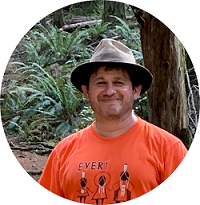
Joel Dacks: “Evolutionary Cell Biology”
The Dacks lab studies evolutionary cell biology of the membrane-trafficking system and how this pertains to both existing cellular diversity and eukaryotic origins. We emphasize microbial eukaryotes (i.e. protists) as critical sampling points to tackle both molecular evolutionary and cell biological questions.
He served as the President of the International Society for Evolutionary Protistology (2018-2020) and as the Treasurer for the International Society of Protistologists (ISOP) since 2018. In 2016, he was the recipient of ISOP’s Seymour Hutner Award and was the Canada Research Chair in Evolution Cell Biology from 2011-2021.
Professor Dacks holds his primary appointment in the Division of Infectious Diseases, Department of Medicine, at the University of Alberta. He is also a Research Scientist at the Institute of Parasitology, Czech Academy of Sciences and an Honorary Professor in the Department of Genetics, Evolution and Environment, linked with the Centre for Life’s Origins and Evolution.
Stefan Geisen: “Soil Protists”

Stefan Geisen: “Soil Protists”
Stefan Geisen is an Assistant Professor at the Laboratory of Nematology at Wageningen University. His main research focus is on soil ecology, with a major focus on protists as well as nematodes and other soil organisms. Starting from taxonomy of soil amoebae, he focused on the abundance and composition of soil protists. His major interest is the functional importance of soil protists in particular how they interact with other soil organisms like bacteria and fungi and how these links affect soil functioning. Therefore, he puts a major emphasis on functional experiments such as how soil protists affect the carbon cycle and plant performance.
He has a broad network among soil ecologists and tries to bring protists into the spotlight of the field. His general interest is shown in an Editor in Chief role of the European Journal of Soil Biology, Section Editor of Pedobiologia and Editorial Board member in several other journals such as the ISME journal.
Matthias Horn: “Virus-Bacteria Interactions in Protists“
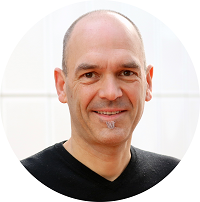
Matthias Horn: “Virus-Bacteria Interactions in Protists“
Matthias Horn is Professor and Head of the Department of Microbiology and Ecosystem Science at the University of Vienna, Austria. He is interested in microbial symbioses, particularly in the evolution and molecular biology of strictly intracellular microbes. He has used bacterial endosymbionts of free-living amoebae and arthropods as model systems to investigate host adaptation and genome evolution in host-restricted microbes and to study the genetic determinants underlying the mutualism-parasitism continuum. Research from his lab has demonstrated the global distribution of chlamydiae as symbionts of diverse eukaryotic hosts, revealed the genomic diversity of these strictly intracellular bacteria, and provided a new perspective on their evolution and biology. More recently, his lab started to study viruses of protists and is currently investigating the effect of co-infections with multiple bacteria or viruses in protists. Matthias held an FWF START Award and an ERC Starting Grant (Consolidator Track) and has worked at the Technische Universität München (Germany), the University of Washington (Seattle, USA), and the Australian Institute for Marine Sciences (Townsville, Australia). He is Editor in Chief of the new open access journal µLife published by the Federation of European Microbiological Societies (FEMS), and he is coordinator of the Ph.D. program Microbial Symbioses funded by the Austrian Science Fund and the University of Vienna. Together with his partner, who is also a scientist, he has three children; the last of their seven guinea pigs died tragically from a microsporidian infection.
Patrick Keeling: “Phylogeny and Evolution”
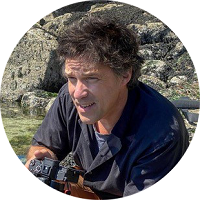
Patrick Keeling: “Phylogeny and Evolution”
Patrick Keeling trained as a student and postdoc in genomics and protistology in Canada, Australia, and the United States, and is currently a Professor in the Botany Department at the University of British Columbia. His lab works on the evolution of symbiosis, including parasitism and organelle origins, protist diversity, and the tree of eukaryotes.
Gaytha Langlois: “ISOP Past-President's Address 2019-2020”
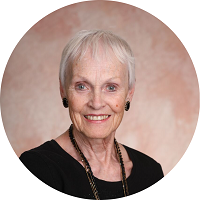
Gaytha Langlois: “ISOP Past-President's Address 2019-2020”
Gaytha A. Langlois, Professor Emeritus - Environmental Policy, Bryant University, and Director, Marine Microbial Ecology Laboratory, has studied microbial communities in rock pools, coral reefs, coastal sediments, and desert soils, including studies of benthic ciliates exposed to oiled environments in Rhode Island’s Narragansett Bay. While working at Heron Island Research Laboratory (HIRS) in Australia from 2005-2018, she has explored the impacts of climate change on reef ciliates, particularly those pathogenic to hard corals., At the Microbial Research Laboratory at Ocean University in Qingdao, China, she worked with graduate students on field studies of marine ciliates.
As a reviewer for several professional journals and regular presenter at international meetings Gaytha has shown a long commitment to encouraging young researchers and seasoned professionals to collaborate on vital protistan research. She has served ISOP as Membership Secretary, Executive Committee member, Program Chair, and President. She also has extensive experience in public policy development in the fields of sustainability and environmental management, ranging from being an elected local official and serving on NGO boards, to designing and implementing a “collaborative learning at a distance” program in Belarus where she worked directly with UNESCO scientists. Multiple visits to China and Tibet have emphasized the linkages of science and society and have reinforced the importance of encouraging young researchers.
Sonja Rückert: “Pathogenic Protists”

Sonja Rückert: “Pathogenic Protists”
Sonja Rueckert is Associate Professor for Marine Biology/Parasitology at the School of Applied Sciences at Edinburgh Napier University in Scotland. Her main research focus is on symbiosis, which started over 20 years ago on metazoan parasites, but has since shifted to ‘parasitic’ protists with a special interest in gregarine apicomplexans. While initially mainly interested in their diversity and taxonomy, her research broadened to cover the evolution of symbiosis and impacts on the symbiont’s host organisms. Gregarines have been shown to cover the whole spectrum of symbiosis from mutualism to parasitism and her lab aims to elucidate the adaptations of gregarines with different life strategies not only on a morphological, but also on cellular and genomic level. To better understand the enigmatic evolution from free-living photosynthetic organisms to intracellular parasites in the Apicomplexa, she is also working on the first cell culturing system for gregarines. Sonja is currently Associate Editor for the European Journal of Protistology and Review Editor on the Editorial Board of Aquatic Microbiology (specialty section of Frontiers in Marine Science and Frontiers in Microbiology).
Una Ryan: “Zoonotic Protists”
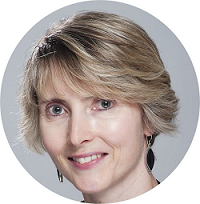
Una Ryan: “Zoonotic Protists”
Prof Una Ryan is a Professor in Biochemistry at Murdoch University. She obtained her undergraduate degree in Zoology in 1988 from University College Dublin, Ireland and her PhD in 1996 in Parasitology from Murdoch University (MU). Since 2000, she has been a tenured academic at MU and was appointed Professor in 2010. In 2014 was awarded the Bancroft-Mackerras Medal from the Australian Society for Parasitology for excellence in her research area of molecular epidemiology. She has >336 publications including 318 journal articles in international journals, 16 book chapters and 2 books. is currently Co-Editor-in-Chief of Parasitology Research.
Alexandra Z. Worden: “Marine Ecology and Global Change”
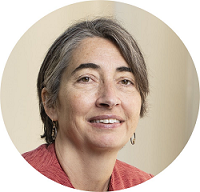
Alexandra Z. Worden: “Marine Ecology and Global Change”
Alexandra Worden (she/her) trained as a student in history and geochemistry, then as a Ph.D. student and postdoctoral fellow in marine microbial ecology. She is currently a professor leading a team that addresses the uptake and fate of carbon in the oceans and how these processes will change under future climates. Her research focuses on the evolution, ecology, and single cell ecology of both cultured and uncultured microbial eukaryotes, as well as photosynthesis, and innovations in methods and technology for studying the ocean from the surface to the deep sea.
